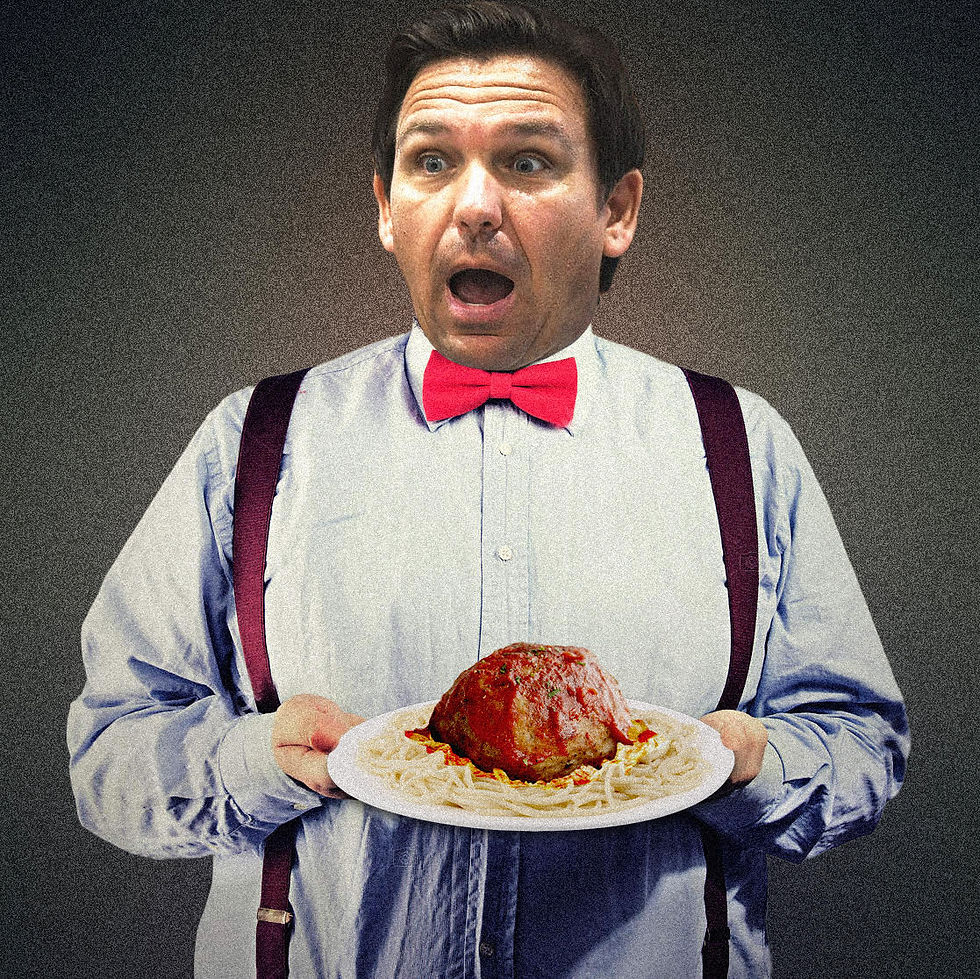
DeSantis lent his name and prestige to two candidates Tuesday— and both lost. One was a direct challenge to Trump— the Kentucky gubernatorial primary— and the other was part of his all-out jihad against Democrats right there in Florida. Let’s take a quick look at that one first. It was in Jacksonville, Florida’s biggest city. You thought Miami was the biggest city in the state? Not even close. Tampa? Less close. Florida’s 5 biggest cities by population:
Jacksonville- 962,970
Miami- 435,919
Tampa- 393,264
Orlando- 312,280
St. Petersburg- 257,290
Nearly the whole population of Duval County lives in the Jacksonville city limits. Duval is a swing county— Biden narrowly beat Trump there— but it was DeSantis country on the same day. His victory over Charlie Crist (a 12 point margin) was wider than in any of the half dozen Florida counties with more people. When Jacksonville’s Republican mayor, Lenny Curry, was term-limited out, the two top winners in the jungle primary were Democrat Donna Deegan (39.4%) and Republican Chamber of Commerce president Daniel Davis (24.7%). DeSantis, who kept out of the primary pitting Davis against a psychotic MAGAt (LeAnna Cumber, who came in 5th with just 8.6% of the vote), jumped right in and endorsed Davis against Deegan. Davis spent millions of dollars more than Deegan’s modest campaign. In the end, DeSantis’ endorsement may have done more harm than good and Deegan flipped the mayoralty of the biggest American city with a Republican mayor. The final results:
Donna Deegan- 113,157 (52.1%)
Daniel Davis- 104,130 (47.9%)
That’s bad news for Meatball instate. But his contest with Trump was in Kentucky and higher profile. Trump backed the establishment candidate, Attorney General Daniel Cameron— a McCarthy acolyte by the way. The other top candidate was Kelly Craft, a wealthy MAGAt who Trump had sold the Canadian ambassadorship to and then, after Nikki Haley quit, the UN ambassadorship. Presidents routinely sell ambassadorships (usually, but not always, to minor countries) to rich people willing to make massive “contributions.” But this was the first time in history that the UN ambassadorship was sold. She and her latest husband, a billionaire coal mining executive, contributed over $2 million to Trump’s 2016 campaign to get her a high profile job. While she was ambassador to Canada, she spent most of her time at home in Lexington, Kentucky.
Wanting to appear a winner, Trump endorsed Cameron, who was leading in the polling. After he did, DeSantis jumped in a backed Craft, who was already making a fool of herself as the anti-woke candidate, but who had put $9.2 million her own money into the campaign. She maintained her #2 polling position for the whole campaign right up until she said that if she was elected “we will not have transgenders in our school system.” That ugly, hateful-- and widely reported-- statement killed her chances and her polling numbers tumbled-- even if DeSantis loved it-- and she wound up in 3rd place in the primary Tuesday. No one cared one way or the other about the Meatball endorsement. It wasn’t worth a single vote.
Daniel Cameron- 144,496 (47.7%)
Ryan Quarles- 65,679 (21.7%)
Kelly Craft- 52,139 (17.2%)
Eric Deters- 17,460 (5.8%)

She lost her home county and of Kentucky’s 120 counties, her 10 million dollar investment only bought 4 small rural hellholes. Over the weekend Meatball had said that the GOP must “reject the culture of losing that has infected our party in recent years.” After he won, Cameron tweeted— a tweet now removed— a congratulations to Trump for continuing his record of a culture of winning,” an obvious swipe at Meatball Ron. During his victory speech Cameron rubbed it in: “Let me just say, the Trump culture of winning is alive and well in Kentucky!”
On Wednesday morning, Dan Pfeiffer looked at the fatal flaw in DeSantis’ anti-Trump message. He wrote that “DeSantis’s best bet is to run on an electability message that highlights Trump’s losses in every election since 2015 and that Meatball “has begun to kinda, sorta tiptoe up to the line of waging this campaign over Trump’s electability.” Unfortunately for DeSantis, “the ‘Trump is a loser’ message works better in theory than in practice. It may be DeSantis’s best approach, but it is highly flawed. How does one run on the platform ‘Trump is a loser’ in the Republican primary when Republican voters don’t think he lost?” Furthermore, “One of the 69% of Republicans who believe the Big Lie— at least according to his public utterances— is Ron DeSantis. The Florida governor has yet to acknowledge that Trump lost in 2020; quite a dilemma when trying to paint Trump as a loser.” Worse: “Republican voters do not want to hear the obvious truth that Trump lost the election fair and square. In that CBS News/YouGov poll, six in ten Republicans prefer a candidate who says Trump won in 2020. Republicans— like all primary voters— are looking for a winner. They think Trump is a winner because no one will tell them otherwise… DeSantis looks hapless and weak, while Trump looks ascendant. In other words, Trump equals winner, and DeSantis equals loser.”
Meanwhile, many of Trump’s relentless attacks on DeSantis are pure nonsense but yesterday Tim Reid and Nathan Layne reported that 40% of the attacks are issue oriented, attacking Meatball on Social Security, the government-run Medicare health program for older Americans, foreign policy and DeSantis' record in office. “Trump,” they wrote, “has repeatedly accused DeSantis of wanting to ‘destroy’ those benefits and has criticized the Florida governor 43 times on those issues since November, with the attacks intensifying since March, according to the analysis… DeSantis voted several times during that period for gradually raising the age to collect Social Security to 70 from 65 and changing Medicare into a system where seniors would get help to buy their own insurance… DeSantis has so far largely failed to push back against Trump's verbal onslaught. That inaction may be contributing to the former president's big early lead in opinion polls in the Republican race, two of the political analysts said. John Feehery, a Republican strategist, said Trump's approach could yield political dividends among a Republican primary electorate that has a large number of older voters who rely heavily on both programs.”


desantis is a nazi. trump is a god.
voters will only elect a hitler if/when their god dies. meatball (and pence too) just don't understand this. he thinks that if he *DOES* all the "mein kampf" things his nazi voters like, he'll win them over. won't happen. the nazi jezis will be the nazi jezis until he stops flailing on the ground clutching his left man boob. nuthin meatball can do about it. he jes ain't no jezis... yet.